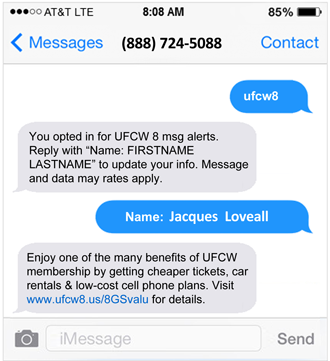 Many times we have thought reading minds would be an amazing super power and how incredible it would be to be able to know what others are thinking. Now, in the age of social media, we have essentially been granted this power.
Many times we have thought reading minds would be an amazing super power and how incredible it would be to be able to know what others are thinking. Now, in the age of social media, we have essentially been granted this power.
Perhaps it is the ease and comfort of using social media apps, the fact people are not face-to-face when posting their thoughts, or maybe the competitive nature created by the pursuit of “likes” is what has led to the unfiltered display of what is on our collective minds for all to see.
What is this new mind-reading technique revealing about our society? It is a very mixed bag, to say the least.
In some, we see empathy and caring for others, gratitude for blessings and the sincere joy for the triumph of others. In others, we see hostility, intolerance, ignorance and insanity.
We also see those deeply concerned about injustices by the powerful who are abusing their power and we can also witness those who are more than too comfortable with lying and agitating to create confusion and chaos.
Toxic to our own minds
Along with the ability to readily access the minds of others, we need to be vigilant and aware the “open books” we are reading can be toxic to our own minds… if we allow them to be.
This may seem so obvious it is not worth stating: Not all opinions and thoughts are equal, healthy or legitimate. There are profound implications when we do not use critical thinking while absorbing information. Unfortunately, this is becoming far too common.
The percentage of us who rely on a quick search of the web to gain “facts” has exploded. The younger we are, the less likely we are to question the validity of the information we see online.
This is a legitimate threat to all things traditionally deeply cherished. The spread of false information is a danger to our health, to our sanity and to our democracy.
As a member, you regularly hear from your Union “not to spread misinformation.”
It’s a common reminder when the Union is negotiating a contract on your behalf and building strength for working families. We need a united front to secure the best contracts possible and to build trust and solidarity.
Lies and half-truths can weaken us
When lies and half-truths are floating around on the work floor and in break rooms, it only serves to weaken and divide us.
It’s damaging enough when lies are spread throughout a grocery store or processing plant. It gets even worse when they’ve spread unchecked across our entire country and even the world.
This is the unfortunate situation we’re in now.
Social media across all platforms are overrun with conspiracy theories containing misinformation and lies. The corporations which own these powerful platforms have displayed an inability — and, at times, an unwillingness — to confront this problem.
Many of these conspiracies have come to mainstream attention as the United States continues to lack a unified response to the coronavirus pandemic. Some Americans have put their trust in unproven “miracle cures” or channeled their frustration into outrageous claims about the origin of the virus and its continued spread.
Such dangerous theories used to be filtered out by legitimate news sources. Now they spread unchecked through social media. Although they exist on digital platforms, they have all too real global implications.
When these lies go unchecked by social media companies, it causes tension across the country. Viral videos abound of people causing public disturbances over their refusal to wear doctor recommended face masks because of sinister motives described in conspiracy theories.
Our members who interact with the public every day are facing untold stress because they don’t know if their next customer is someone who respects the advice of medical experts or someone who will willingly put their health and the health of others at risk.
The incredible rise of social media as the primary news source for millions of Americans has had many positive effects, such as the inclusion of previously neglected voices in the national conversation. But social media still has much to learn from the old ways of gathering and disseminating news, such as research, reliable sourcing and taking responsibility for published content.
We must remain vigilant when choosing our news sources and let the facts guide us through these uncertain times. In doing so, we will take better care of ourselves and each other.
Solidarity Works!


